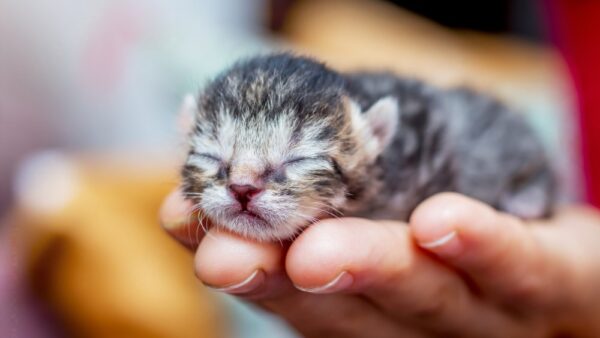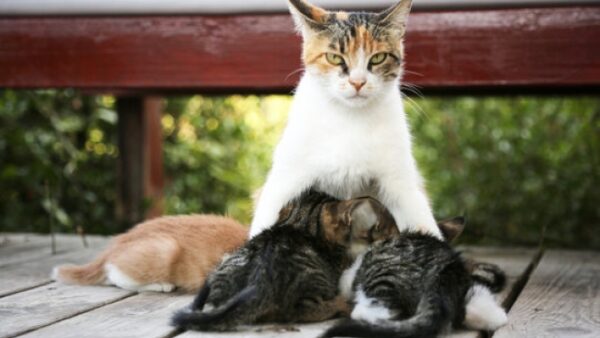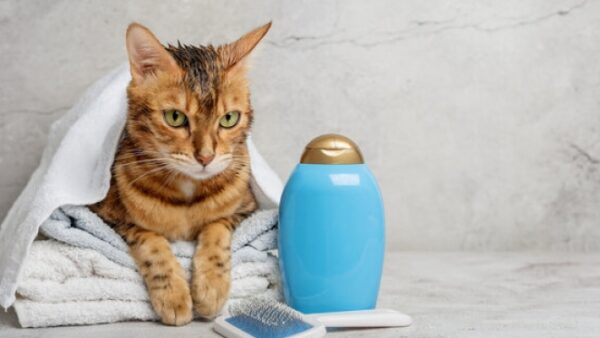Cats are strictly carnivores, meaning that they require a diet rich in animal protein to thrive.
While commercial cat food can provide the necessary nutrients, some cat owners prefer to supplement their feline’s diet with human food.
One food that may be tempting to share with your cat is rotisserie chicken. Rotisserie chicken is a popular choice among pet owners as it is readily available, easy to prepare, and contains a high amount of protein.
However, before sharing your rotisserie chicken with your furry friend, there are some factors to consider ensuring your cat’s health and well-being.
In this blog post, we will explore the question, “Can cats eat rotisserie chicken?” and provide you with all the information you need to make an informed decision about feeding your cat this tasty treat.
We’ll delve into the nutritional value of rotisserie chicken, how it can benefit your cat’s health, as well as some precautions and potential risks associated with feeding your cat rotisserie chicken. So, let’s get started!
What happens if a cat eats cooked chicken?

Cooked chicken is generally considered a safe and healthy food option for cats.
However, it is important to note that not all types of cooked chicken are suitable for feline consumption, and some precautions should be taken to ensure that your cat’s health is not compromised.
When cats consume cooked chicken, they are getting a good source of protein.
Protein is essential for cats as it helps to maintain muscle mass, supports healthy skin and coat, and is necessary for the normal functioning of many body systems.
Cooked chicken is also a good source of vitamins and minerals, such as vitamin B6, vitamin B12, zinc, and iron.
While cooked chicken can provide many benefits for cats, there are some potential risks to be aware of.
One risk is that cooked chicken may contain bones, which can pose a choking hazard or cause internal injury if swallowed.
Additionally, cooked chicken that has been seasoned with salt, garlic, onions, or other seasonings can be harmful to cats, as these ingredients can be toxic to felines.
Another potential risk associated with feeding cats cooked chicken is the risk of bacterial contamination. Raw chicken can contain harmful bacteria, such as Salmonella and Campylobacter, which can cause food poisoning in humans and animals.
Cooking the chicken thoroughly can eliminate these bacteria, but there is still a risk of bacterial contamination if the chicken has been stored improperly or handled incorrectly.
Overall, feeding your cat-cooked chicken can be a healthy and nutritious treat, as long as certain precautions are taken.
It is important to ensure that the chicken is thoroughly cooked, boneless, and free of seasoning or other harmful ingredients. If you are unsure about whether or not to feed your cat cooked chicken, it is always best to consult with your veterinarian, who can provide advice based on your cat’s individual needs and health status.
Can kittens eat roast chicken?

Kittens, like adult cats, require a diet that is high in protein to support their growth and development.
As such, many cat owners consider feeding their kittens roast chicken as a treat or supplement to their regular diet.
While roast chicken can provide many benefits for kittens, there are some factors to consider before offering this food to your furry friend.
First and foremost, it is important to note that kittens have specific nutritional needs that differ from adult cats.
Kittens require a diet that is higher in calories, protein, and fat to support their rapid growth and development. As such, feeding your kitten roast chicken in moderation can provide them with a source of high-quality protein, which is essential for their growth and development.
However, there are some potential risks associated with feeding kittens roast chicken. One of the primary concerns is the presence of bones in the chicken.
Bones can pose a choking hazard or cause internal injury if swallowed, which can be particularly dangerous for young kittens who are still developing their ability to chew and swallow food properly.
As such, it is important to ensure that the chicken is boneless and cut into small, manageable pieces before offering it to your kitten.
Another potential risk associated with feeding kittens roast chicken is the risk of bacterial contamination.
Raw chicken can contain harmful bacteria, such as Salmonella and Campylobacter, which can cause food poisoning in humans and animals.
While cooking the chicken thoroughly can eliminate these bacteria, there is still a risk of bacterial contamination if the chicken has been stored improperly or handled incorrectly.
Overall, kittens can eat roast chicken in moderation as a healthy and nutritious treat, as long as certain precautions are taken. It is important to ensure that the chicken is boneless and cooked thoroughly to eliminate the risk of choking or bacterial contamination.
Additionally, it is recommended to consult with your veterinarian before offering your kitten any human food, as they can guide the appropriate diet for your kitten’s specific needs and developmental stage.
Can Cats eat rotisserie chicken?
Rotisserie chicken can be a healthy and nutritious food option for cats when fed in moderation and under the right circumstances.
However, it is important to keep in mind that not all rotisserie chicken is created equal, and some precautions should be taken to ensure that your cat is receiving the necessary nutrients and is not being exposed to any harmful ingredients.
One of the primary benefits of rotisserie chicken for cats is its high protein content. Cats are obligate carnivores, meaning that they require a diet that is high in animal protein to maintain optimal health.
Rotisserie chicken is a great source of protein and is often more appealing to cats than traditional cat food, making it a popular choice among pet owners.
In addition to protein, rotisserie chicken also contains essential vitamins and minerals that can support your cat’s overall health.
These nutrients include vitamin B6, vitamin B12, zinc, and iron, all of which are important for maintaining healthy skin and coat, muscle mass, and a strong immune system.
However, it is important to keep in mind that not all rotisserie chicken is created equal.
Some store-bought rotisserie chicken may contain added salt, spices, or other ingredients that can be harmful to cats.
Additionally, the skin of the chicken can be high in fat and calories, which can contribute to weight gain and other health issues if consumed in excess.
Another potential concern with feeding your cat rotisserie chicken is the risk of bacterial contamination. Raw chicken can contain harmful bacteria, such as Salmonella and Campylobacter, which can cause food poisoning in humans and animals.
While cooking the chicken thoroughly can eliminate these bacteria, there is still a risk of bacterial contamination if the chicken has been stored improperly or handled incorrectly.
Overall, a rotisserie chicken can be a healthy and nutritious food option for cats when fed in moderation and under the right circumstances. It is important to ensure that the chicken is boneless, cooked thoroughly, and free of any harmful ingredients.
So, can cats eat rotisserie chicken? Yes, they can but if you are still unsure about whether or not to feed your cat rotisserie chicken, it is always best to consult with your veterinarian, who can provide advice based on your cat’s individual needs and health status.
Conclusion
Can cats eat rotisserie chicken, including cooked chicken and roast chicken? Yes, they can but these foods should be fed to them in moderation as part of a healthy and balanced diet. Chicken is a great source of high-quality protein and essential nutrients that can support your cat’s growth, development, and overall health.
However, it is important to take certain precautions when feeding your cat chicken, such as ensuring that it is boneless, cooked thoroughly, and free of any harmful ingredients.
Additionally, it is always recommended to consult with your veterinarian before offering your cat any human food to ensure that their diet meets their specific nutritional needs and is safe for their health.
With proper care and attention, rotisserie chicken can be a healthy and tasty treat for your furry friend.
You can also read: Why do Male cats kill Kittens and How to prevent this







Leave a comment